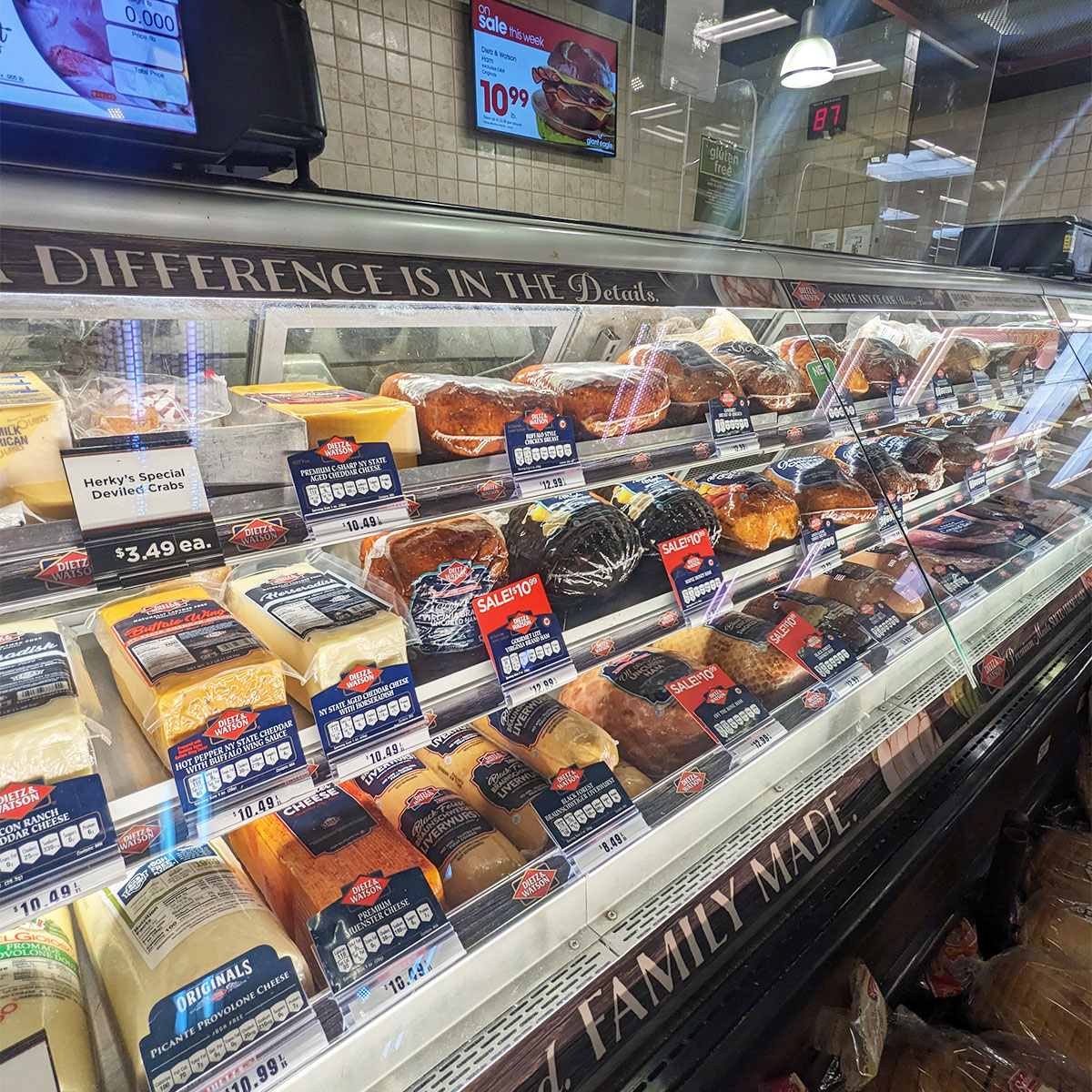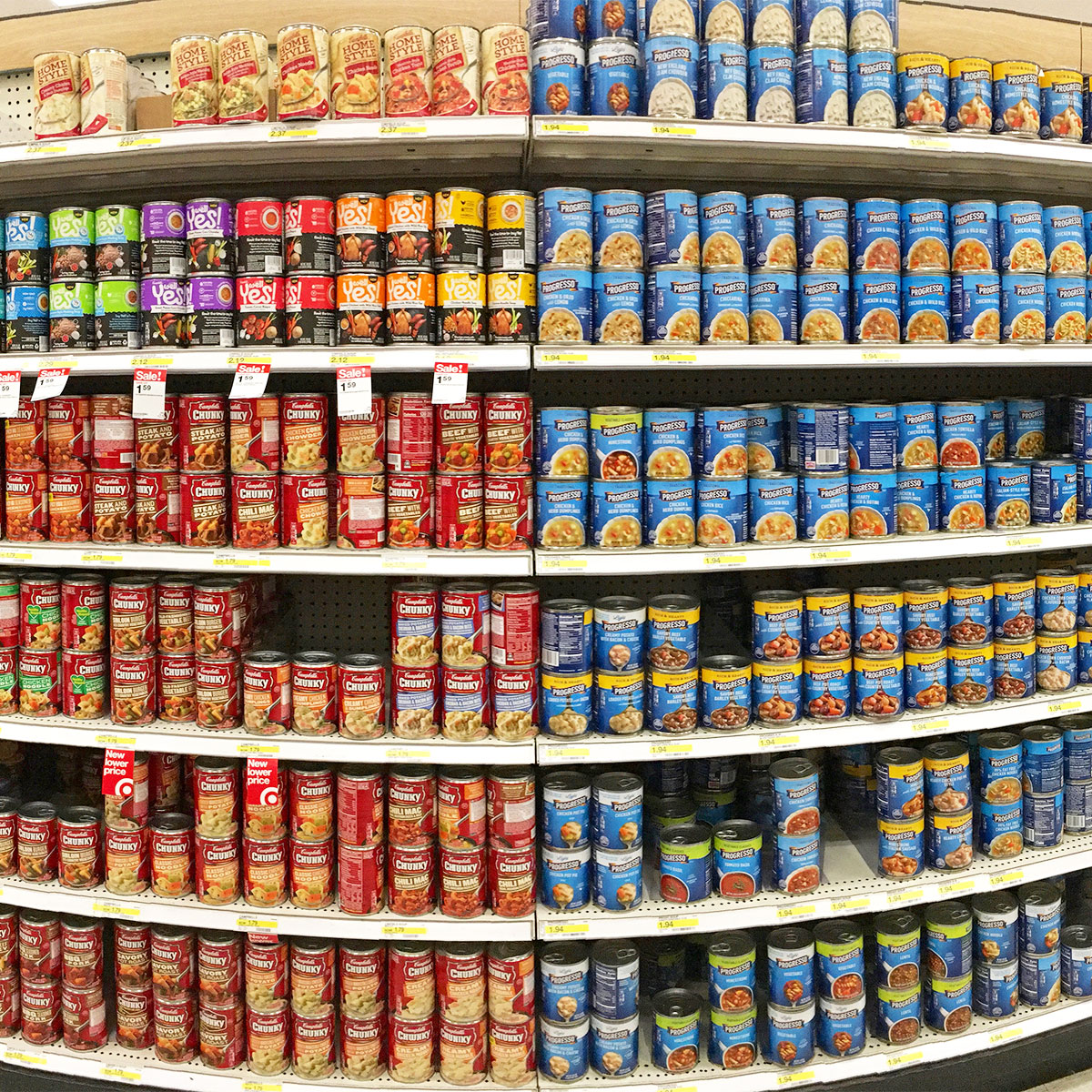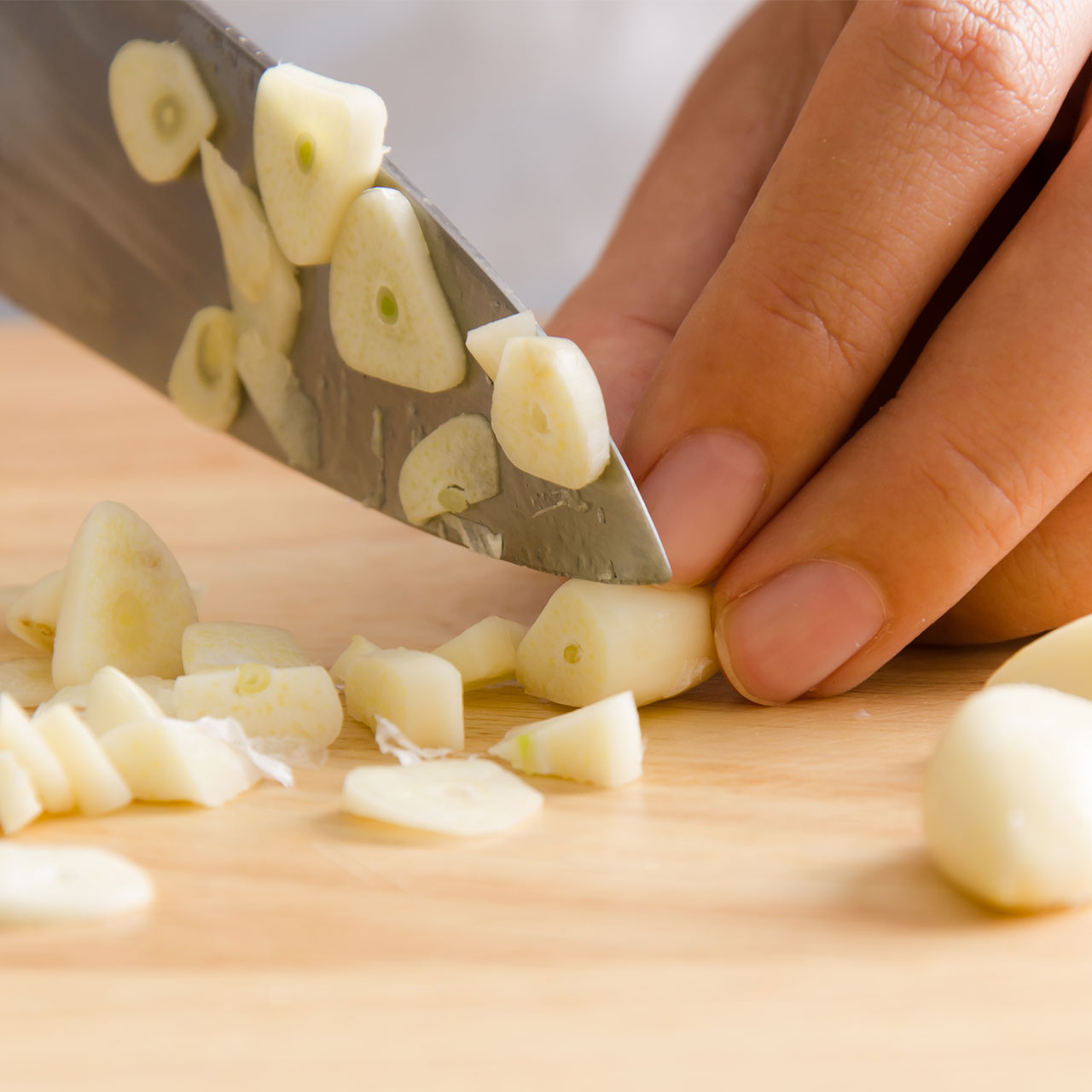Sodium may help food last longer and even taste better—but it can also be terrible for your health. This is especially true when it comes to your heart. As it turns out, excessive sodium intake could lead to a higher risk of high blood pressure and, ultimately, heart disease. Unfortunately, many of the foods you eat on a regular basis could be loading your diet with too much sodium and putting your health at risk.
To discover a few of the worst high-sodium foods out there, we checked in with Kayleigh Caito, MS RDN. She told us that processed meats and canned soups or broths are some of the biggest offenders. Read on to learn more about the risks of these convenient but detrimental foods.


1. Processed & Cured Meats
A good old deli meat sandwich from time to time can make a delicious lunch. Unfortunately, though, it's not always the best idea for your health—and we're not just talking about the downsides of white bread. Caito warns that deli meats and other processed meats are typically packed with sodium, making them a poor choice for your heart.
"Processed meats like deli meats, bacon, sausage, and hot dogs, can be very high in sodium," she says. "They are often preserved using sodium-containing additives like sodium nitrate/nitrite, which can significantly contribute to your daily sodium intake."
She recommends chicken, fish, beans, and eggs as "good high-protein alternatives." Got it! In general, fresh, lean proteins are always a good choice.

2. Canned Soups and Broths
When you don't have the time to prepare a full, home-cooked dinner, canned soups can really come in handy. However, it's important to pay attention to the nutrition label on this convenient food. Oftentimes, canned soups and broths have an ultra-high sodium content.
"1 can of soup can contain 600-1200 mg of sodium, which is more than half of the recommended 2300mg per day (per the American Heart Association)," Caito points out. "Even seemingly healthy options of soup can contain a significant portion of your daily recommended sodium intake in just one serving."
For this reason, being a conscious consumer and checking the sodium content of any canned foods you buy (including canned vegetables) is a crucial part of keeping your heart healthy. Additionally, Caito recommends "making your own homemade soup with low sodium ingredients and plenty of herbs and spices in place of salt." We'd also suggest some healthy slow-cooker recipes!

The bottom line
At the end of the day, keeping your heart healthy will require you to stick to a number of good habits on a regular basis. However, switching up your diet is one great way to start getting serious about your overall health. By limiting your intake of high-sodium foods like these and adding heart-healthy foods to your plate instead, you'll be taking a major step in the right direction.


























